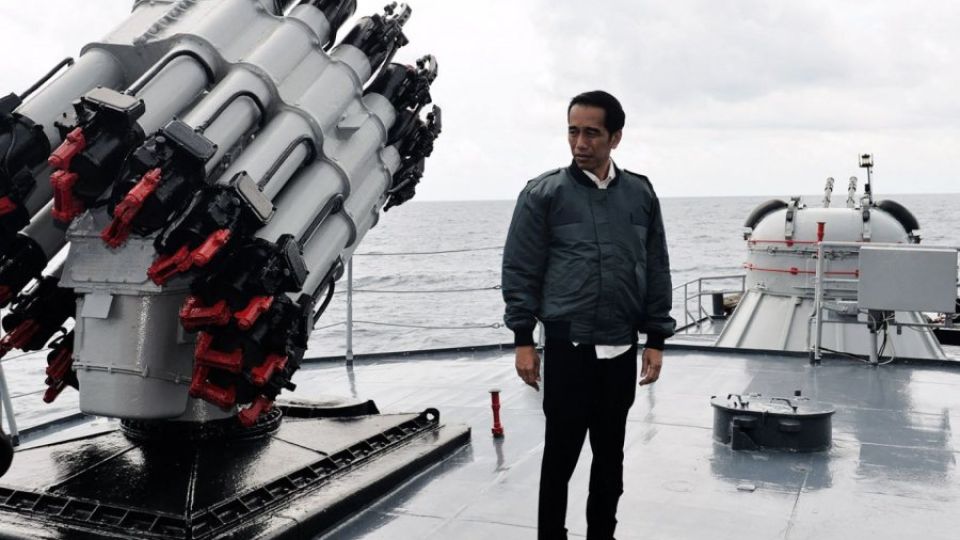January 27, 2023
JAKARTA – As this year’s ASEAN chair, Jakarta must use its diplomatic capital to advance negotiations on the bloc’s unfinished Code of Conduct (COC) for the South China Sea, analysts have said, as the region’s geopolitical tensions seem set to intensify.
For more than a decade, ASEAN has been working with China to produce a set of guidelines, the COC, to prevent open conflict in the South China Sea, but progress has been slow as a result of conflicting interests and, more recently, the COVID-19 pandemic.
But with China finally reopening its borders and bolstering its economic cooperation with ASEAN countries this year, COC negotiations are also expected to resume.
“Indonesia will continue negotiations for the second reading [of the COC]. It plans to coordinate with China and Myanmar for a meeting in 2023,” Foreign Ministry spokesperson Teuku Faizasyah said recently.
Myanmar, which has been in crisis since a military coup in 2021, is the ASEAN-China partnership coordinator until 2024, Faizasyah noted. The junta has been barred from ASEAN meetings at the bloc’s insistence, putting chair Indonesia in charge of an awkward balancing act.
On Jan. 19, a senior diplomat said Indonesia would seek to “build trust in private” to reach a solution.
Considering ASEAN’s troubles, experts argued that going the quiet bilateral route could be Jakarta’s best bet to make progress.
“China is not a country with the best commitment to the norms of international law,” said Dafri Agussalim, an international relations expert from Gadjah Mada University.
“Jakarta’s diplomatic approach to Beijing must not be confined to the conventional ‘track-one’ route,” he said, referring to the government-to-government channel.
China claims sovereignty over almost the entire South China Sea, despite an international tribunal ruling that its claims have no legal basis. The Philippines, Vietnam, Malaysia and Brunei have overlapping claims to parts of the sea as well.
On Wednesday, Philippine President Ferdinand Marcos expressed renewed concern over the South China Sea, including tense interactions between US and Chinese warships in the area, AFP reported.
“If something goes wrong here, we are going to suffer,” Marcos said at the World Economic Forum in Switzerland.
Stealthy intrusions
China and Indonesia are not officially at odds over the South China Sea, although Beijing has ruffled feathers by operating in Indonesia’s exclusive economic zone (EEZ).
In the latest incident on Jan. 14, China sent its largest coast guard ship, the Zhaotou-class CCG-5901, to “monitor” the resource-rich waters adjacent to the disputed sea, security analysts said.
The increasing frequency of Chinese intrusions into Indonesia’s maritime zones was alarming, said researchers at the Indonesia Ocean Justice Initiative (IOJI).
Indonesia is planning to start exploring for oil in the North Natuna Sea, which is adjacent to the South China Sea, this year.
“Previous trends showed Chinese vessels monitoring the area for a month or two at a time, but this largest coast guard vessel is capable of staying put for three months or more,” said researcher Imam Prakoso.
A Chinese Embassy spokesperson in Jakarta told The Jakarta Post that CCG 5901’s activity was legally justified.
“[To] safeguard security and order at the sea, vessels of the China Coast Guard have been cruising in sea areas that China has jurisdiction, in accordance with domestic law and international laws, including UNCLOS,” the spokesperson said, referring to the 1982 United Nations Convention on the Law of the Sea.
Maritime experts at IOJI dismissed the statement, insisting that the area was under Indonesia’s jurisdiction and that the Chinese activity had violated the UNCLOS stipulation of due regard and good faith.
Previously, Beijing sent a letter to Jakarta in protest of Indonesia’s exploration of the area in late 2021.
Quiet success
In addition to increased diplomatic efforts, the IOJI recommended that Indonesia intensify its defense and law enforcement presence in the North Natuna Sea.
IOJI cofounder Andreas Aditya Salim noted that Indonesia’s legacy in the development of UNCLOS was “outstanding” and should be leveraged.
And as the de facto leader of ASEAN, Indonesia should use its diplomatic clout to push negotiations on the COC, he added, including through less conventional means.
“There is a power imbalance between China and Indonesia. […] The players of the South China Sea are not only ASEAN members. Japan, the United States and many other states are also stakeholders. At this point, it would be absurd to exclude them,” Andreas said.
But others like Dafri argued that pushing the COC through multilateral means would be difficult if ASEAN was not united.
One thing that the experts concurred on was that “megaphone diplomacy” should be avoided. Any move to finalize the COC draft or establish a more neutral South China Sea would require low-key statesmanship.
“China is a country with a ‘face saving’ culture,” Andreas said. “We have to keep in mind that there are neighboring countries strongly affiliated with China.”
Indonesia has had its fair share of success in quiet diplomacy.
“It is a recurring pattern with our partnership with Malaysia, for example,” Dafri said. (tjs)


